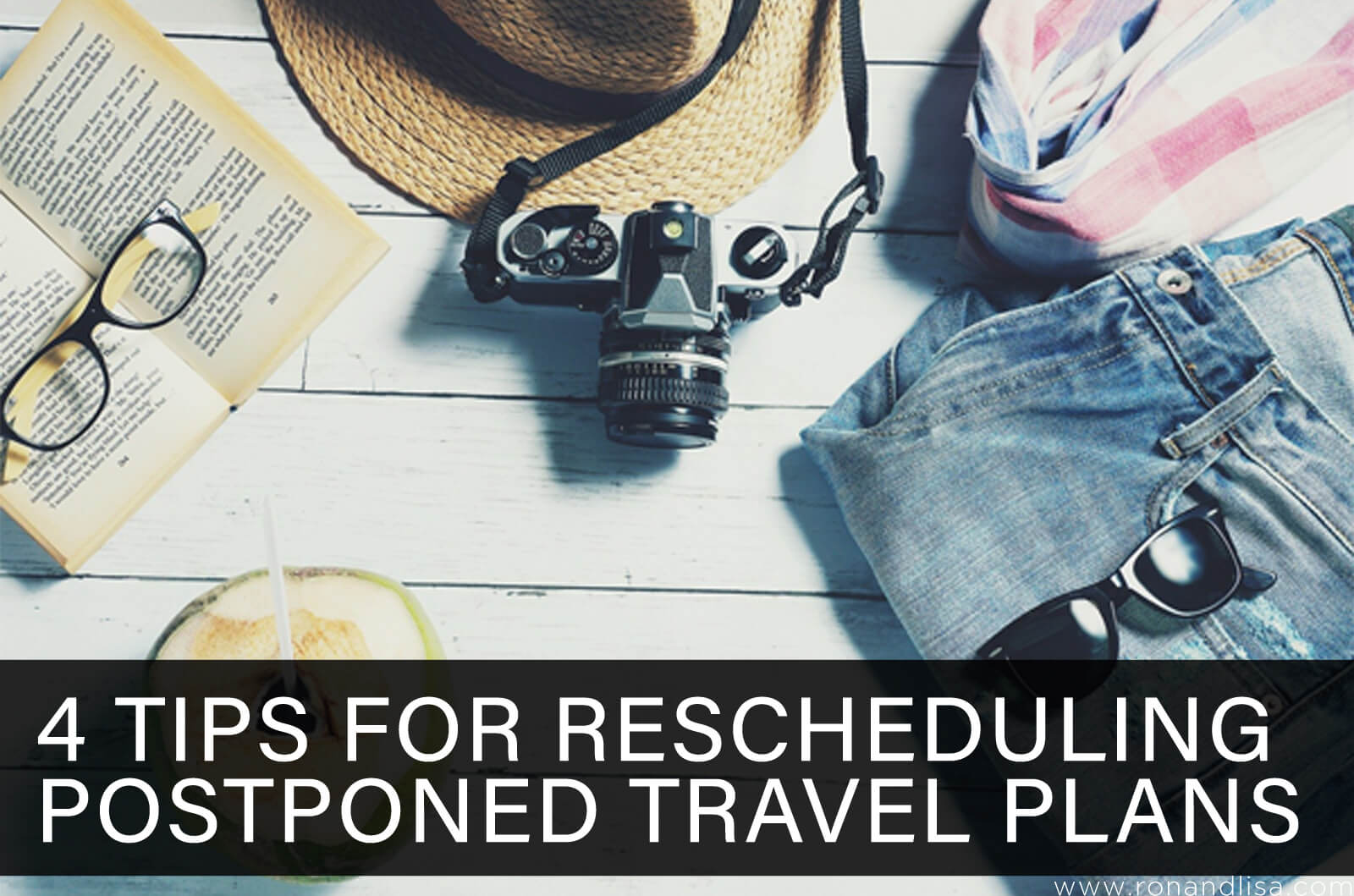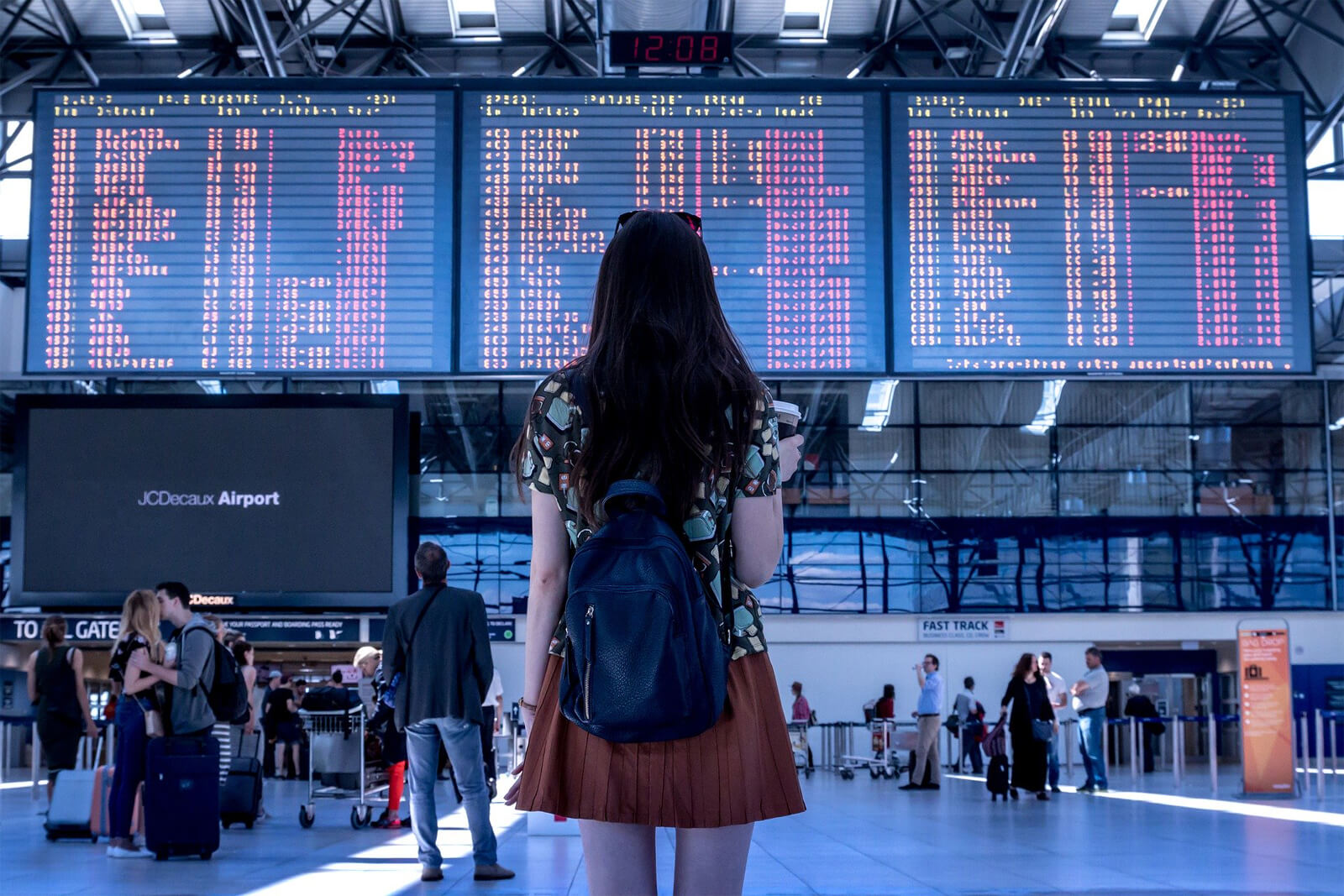The novel coronavirus calamity has created a major setback in our daily lives and the virus doesn’t appear to be vanishing anytime soon.
With the world’s focus on reducing the spread of COVID-19, activities that conflict with this focus such as travel, have been halted, postponed, or rescheduled. Traveling can be one of the quickest ways to rapidly spread an infectious disease. Considering this, travel is now highly restricted and often discouraged. If you previously booked a vacation or had travel plans disrupted by the current pandemic, then you might be wondering how to obtain a refund or reschedule future travel plans.
While a refund may seem like the most common-sense approach, many people are being denied refunds for their existing travel plans. Instead, alternatives such as future travel credits and vouchers are offered so those travel companies aren’t required to refund a large amount of cash in a short time period. If your pre-planned trips were canceled, then it’s important to be aware of the best approach for rescheduling. Below are four tips to help you ease your travel woes.
1. Establish Direct Communication
Establish direct communication with whomever you booked your travel arrangements through. For airplane tickets, this would be the airline you intended to fly with. If you booked through a third-party website or travel agency, your refund will still be based on the airline’s policy.
Most major airlines have fair refund policies currently in place, but some are offering air credit rather than shelling out a refund. By communicating directly with the airline, you’ll have the opportunity to ask politely for a refund and hope that a representative can assist you.
For hotel reservations, get in touch with the hotel directly as well. Most will offer you the chance to reschedule your stay for a later date, but a little friendly persistence may equate to a full refund.
Keep in mind that when it comes to refunds, you won’t receive anything unless you take action. Start with reaching out to the airline or hotel that you booked your travel with.
2. Prioritize Cash Refunds
When negotiating a refund, prioritize cash refunds over future promises and credit. One of the main problems with the current coronavirus pandemic is that it’s unclear when it will end. This uncertainty conflicts with the way many travel companies are choosing to approach refunds.
A common strategy is to offer the same service at a future date. For example, instead of flying in July, you might be eligible to take your flight sometime next year. While you’ll technically still receive the same service, the difference is that you’ve prepaid, but won’t receive that service for several months or years to come.
Considering that there’s no quick end in sight for COVID-19, it is unclear when travel will resume to its full capacity again or feel safe for many; especially the immune-compromised. This delay could mean that you’ll be unable to redeem your prepaid flight or hotel reservation for quite some time. Therefore, it’s advised to seek out cash refunds if and when available. This will return your money to your bank account, allowing you the flexibility to spend the cash on essentials or another vacation when the time is right.
As many companies resist offering cash refunds, persistence is key. The current pandemic is unexpected and you shouldn’t be financially responsible for losses that are of no fault of your own.
3. Consider Credit Incentives

While cash refunds are the best option, accepting credit may also be appealing if the right incentives are offered. While you aren’t responsible for the losses incurred by travel companies, offering to accept credit allows you to help them stay afloat while benefiting yourself. Many businesses, especially smaller travel companies, are at risk of going bankrupt due to the reduced sales caused by the pandemic. This is largely why refunds are not as easy to obtain.
Because many travel companies require the funds for operational costs from the services you’ve already paid for, they may offer added incentives to encourage you to choose an alternative to a cash refund. A hotel, for example, may add a few extra days to your stay or include a complimentary room upgrade. An airline may choose to double the frequent flyer miles you’ll accrue on a future flight. The incentives can vary, but they might be a wise investment if you aren’t pressed for cash at the moment.
Related Articles:
Who Says You Can’t Have Christmas In January?
Two Deadly Intruders: One Escape Plan. Are You Prepared?
A Tribute to Helmut Ziehe: Visionary & Founder of IBE, USA
3 Feng Shui Tips for Peace, Harmony & Joy in Your Life
FEELING STUCK? 3 Simple Ways to Cleanse the Energy at Home
PAIN IN THE A’S: Asthma, ADHD, Allergies & Autism
TIME OUT! Why Product Recalls Belong in the Naughty Corner
Feng Shui for New Buildings: 7 Essential Tips
Healthy Makeover: Home Edition – The RESULTS!
6 Tips to Decorate a Stress-Free Home
Stay Calm: Add Some OM to Your Home with These 5 Easy Steps!
{Healthy} Home Improvement: Tips & Tricks for Your Next Project
The Ultimate Guide to Natural Mold Removal
How to Make Your Home More Allergy Friendly
4 Places Germs Are Lurking in Your Home
The Healing Powers of [So Well Made] Himalayan Salt Lamps
How BPA Can Disrupt Sexual Function & Reverse Sexual Behavior
The Ultimate Houseplant Cheat Sheet
Toxic-Free Cleaning Hacks for a Healthy Home
Spring Cleaning Tip: 3 Toxic Products You Should Toss!
8 DIY Repellent Recipes for Household Bugs
How to Choose A Healthy Protein Powder
4. Delay Rescheduling
A final consideration is to delay rescheduling your travel plans until the coronavirus pandemic wanes. Since there’s no telling when the COVID-19 cases will subside to acceptable levels, this begs the question of when travel will resume to full capacity again.
With this in mind, now may not be an ideal time to reschedule travel plans since the dates you select might not be finalized in foreseeable future. There’s no need to reschedule multiple times, so consider holding off altogether and rebooking at a later time. It certainly doesn’t hurt to postpone rescheduling a vacation since prices are likely to decrease once traveling fully resumes and becomes safer for everyone.
Traveling can feel unsafe or be uncertain for many people due to the likelihood of spreading the virus. Considering this, be sure to implement the above strategies when addressing canceled plans such as establishing direct communication with the travel companies, prioritizing a cash refund, considering credit incentives, and delaying rescheduling until there is more clarity on the current situation.
Traveling is an excellent way to relax, unwind and relieve your current worries; something that we could all use a little more of right now. However, even without a desired getaway, it’s important to take time for yourself and enjoy a reprieve in the comfort and safety of your own home.
This post was sponsored. All thoughts and opinions are our own.





Hi,
I am Henry from serve the injured and I was just going through your website and it’s quite stunning and comprehensive. I have a question for you do you accept guest posts on your website? Because I am interested in such an opportunity. Please get back to me so we can discuss it.
Thanks